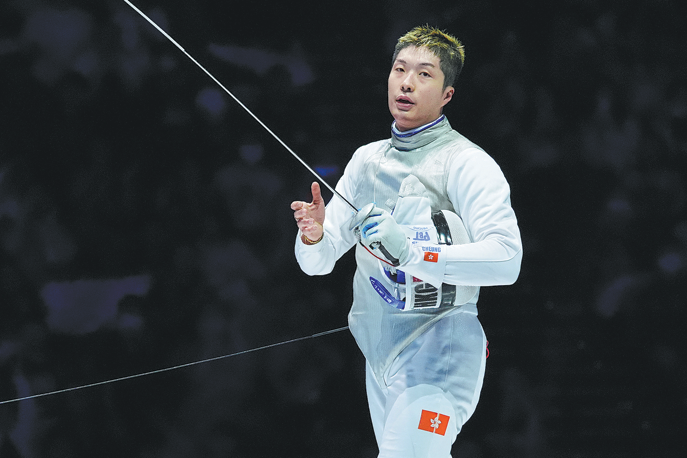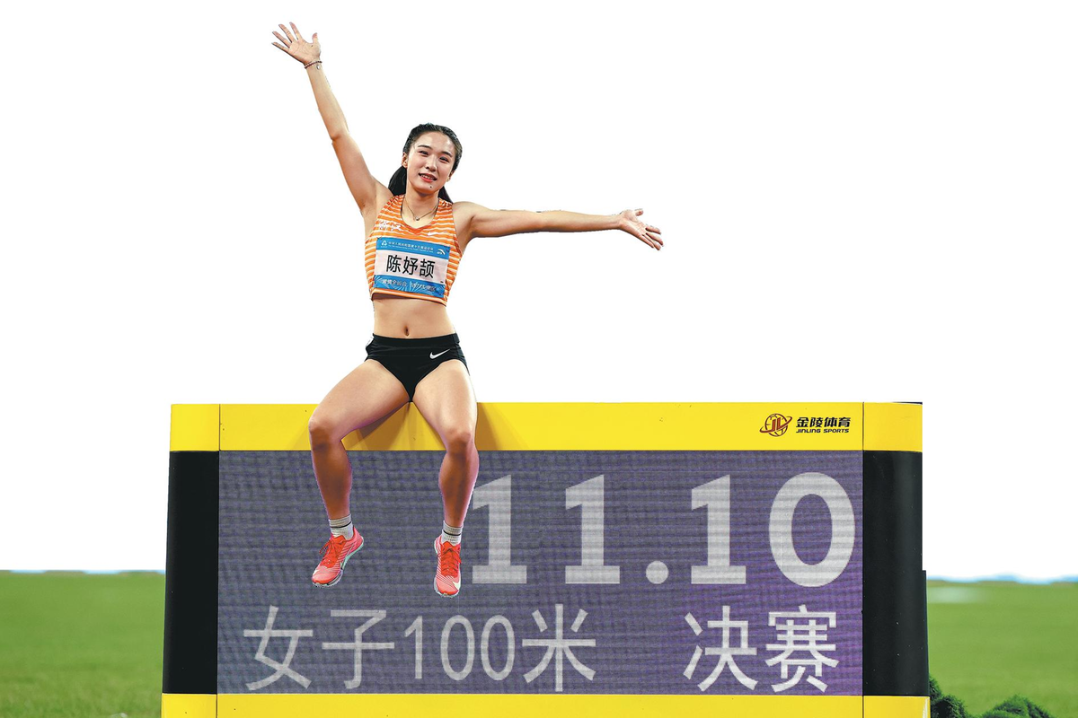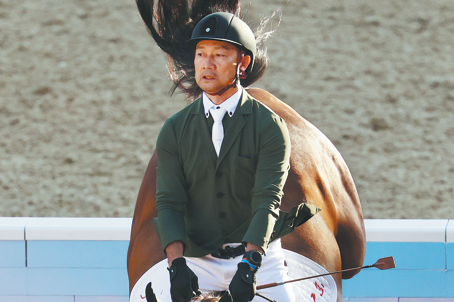Sports gala proves golden for GBA
National Games end in Shenzhen with stunning closing ceremony


With unity across regions celebrated along with athletic prowess, China's National Games have capped off a memorable edition with profound legacies, on and off the field of play, boosting integration of the Guangdong-Hong Kong-Macao Greater Bay Area.
After two weeks of intense competition and an extensive display of southern China's culture, the country's biggest quadrennial sporting gala bid farewell to its participants in a visually stunning ceremony on Friday in Shenzhen, Guangdong province, leaving the crowd excited about the future prospects of closer GBA teamwork in hosting more major events.
The open-air closing ceremony, which took place at the waterfront theater at Shenzhen's OH Bay, featured a variety of art performances celebrating sporting achievements, cultural diversity and the close bonds between the host areas, enhanced by dazzling audiovisual effects, on a water-covered stage set against an illuminating backdrop of the city's urban night view.
As the first edition jointly held by Guangdong and the special administrative regions of Hong Kong and Macao, the success of the multisports event is a compelling testament to the significance of the "one country, two systems" policy, said officials and participants.
"By hosting the games together, we've innovated and effectively implemented a cross-regional cooperation model for hosting mega events, which will give fresh momentum to the coordinated development of the GBA in the future," Wang Xi, vice-president of the Organizing Committee of the 15th National Games, said at a news conference on Friday.
As a highlight of the event, the smooth operation of the men's individual road cycling race, the first ever cross-border event in the games' 66-year history, which was facilitated by the Hong Kong-Zhuhai-Macao Bridge and a tailor-made customs clearance system helping riders pedal past mid-race border checkpoints without stopping, set a perfect example of the games' legacy for further promoting GBA integration.
The 230-kilometer race started on Nov 8 at Zhuhai in Guangdong, looped through Macao, and then crossed the spectacular bridge to reach Hong Kong before cyclists sprinted back to Zhuhai for the finish.

"Every aspect of the cross-border race, from the route design to the swift clearance of athletes, spectators and vehicles, required joint planning and close coordination. So pulling it off without a hitch was a significant practice for organizing similar events in the future," said Yeung Tak-keung, head of the Hong Kong coordination office for the games.
The successful hosting of the cycling race, as well as an inter-city marathon which started and finished in Shenzhen on Nov 15 with its route going through Hong Kong, shed light on the convenient transport infrastructure as an advantage of the GBA.
"The National Games carry great significance. It is not only about the sports community staging an event, but the whole of society is also involved," Timothy Fok Tsun-ting, president of the Sports Federation and Olympic Committee of Hong Kong, told Xinhua News Agency.
"In the long run, the closer exchanges fostered by the games will give a major boost to the development of the Greater Bay Area."
Macao's involvement in hosting some of the most sought-after events, such as table tennis and women's volleyball, has already attracted over two million visitors to the city during the games, according to O Lam, secretary for social affairs and culture of the Macao SAR government.
"By bringing high-level sporting events to Macao we've seen quite an impressive increase in the number of visitors to the city, proving that sports-plus-tourism could be a new attraction for Macao's economic growth," said O, who is also vice-president of the games' organizing committee.
Chinese athletes' outstanding performances were underlined by the fact that eight world records, 13 Asian records and 14 national records were broken during the games, according to the General Administration of Sport of China, giving a strong confidence boost to the country's preparations for the 2028 Los Angeles Olympic Games.
"The rise of a group of young talents at the games has suggested that our sports talent development program is working well, building our confidence for a successful Olympic campaign in 2028," said Tong Lixin, vice-minister of the General Administration of Sport of China.
A total of 2,858 drug tests were completed during the games, with no positive results reported, proving that a vigilant anti-doping education program, which had involved over 36,000 athletes, coaches and team officials, worked well in promoting fair play and integrity, Tong added.
The total ticket sales of the games reached 246 million yuan ($34 million) by Friday, ranking third on the list of all mega sporting events hosted in China, following only the 2008 Beijing Summer Olympics and 2023 Hangzhou Asian Games, according to the organizing committee.
sunxiaochen@chinadaily.com.cn
Most Popular
- Sports gala proves golden for GBA
- 'Asian Flying Man' hangs up his boots
- Tiny Curacao on top of the world
- A point to prove: Cheung elated after finally winning Games gold
- Setting the pace for the next generation
- Coach Chan eyes new goals after leading Jiangsu women to Games gold






























